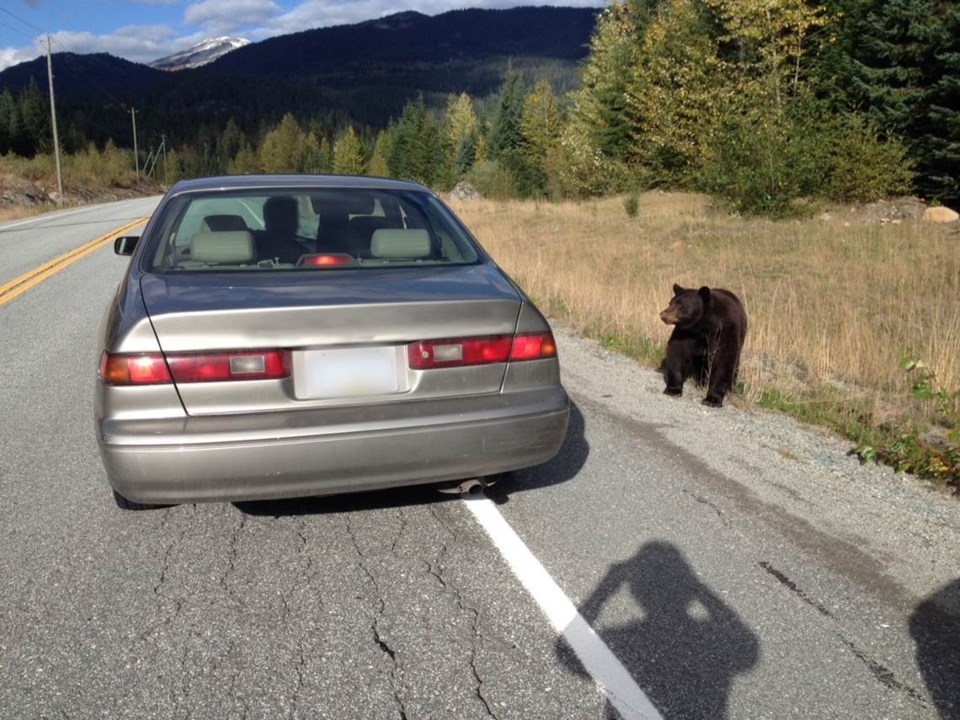Amidst a season with few natural food sources for Whistler's bear population, concerns are mounting that the resort's human residents are getting too close for comfort to wildlife.
On Sunday, Sept. 27, the driver of a black SUV was fined $345 under the Motor Vehicle Act for partially blocking a lane of traffic on Callaghan Road in order to get an up close and personal look at two nearby black bears feeding on grass, according to the Conservation Officer Service (COS). Just two days earlier, the driver had been ticketed for the same offence.
Also on Sunday, the COS was tipped off to two resort visitors who had parked on the side of the road - again on the Callaghan - in order to feed a hungry bruin. The individuals were reportedly observed tossing scraps of food out the vehicle's window.
It's the kind of behaviour that raises alarms for Conservation Officer Tim Schumacher, particularly during a period when bears are trying to fatten up before hibernation in spite of a weak alpine berry crop.
"We've had a number of vehicles stopping on the Callaghan to view bears and are only a few metres away from the bear," he said.
"The response I always get is, 'I just want a photo.' All people want is their photo or their experience and they have no care in the world what happens to the bear after the fact."
Getting the message across to the public to keep their distance from the Whistler's ursine population has long been a challenge for both the COS and The Get Bear Smart Society, especially with the number of visitors to the resort who may be unaware of proper wildlife management practices. Schumacher, for his part, is not sure what the solution is.
"We're always tossing ideas around on how to deal with particular issues. This one is such a difficult one and I don't know how we can get the message out. I think we need to be very blunt about it," he said. "We have so many visitors, and even just during that one encounter, if a bear thinks it can associate people with food and not being a threat, then that contributes to that bear's behaviour the next time it sees a person. When people are getting that close to a bear, they're essentially killing them."
An idea floated last week by Bear Smart director Sylvia Dolson believes would be to implement coordinated food drops to tide the animals over until hibernation, and ideally, stem the potential for conflict with humans.
While diversionary food programs are technically against the law in British Columbia, they've been used by Parks Canada for years, and to great effect in California in 2007 when the Lake Tahoe-based BEAR League dropped orchard fruit in the alpine during a season the area's natural food sources were ravaged by drought and wildfire.
Schumacher remained mum on the issue, saying he has his "personal opinions" on the idea, but that those types of decisions are better left to the "appropriate authorities with the appropriate qualifications," such as wildlife biologists.
Members of the public are urged to keep their distance from bears, and that includes vehicles, in order to prevent the animal's habituation to humans. To report violators or wildlife encounters, call 1-877-952-7277.




